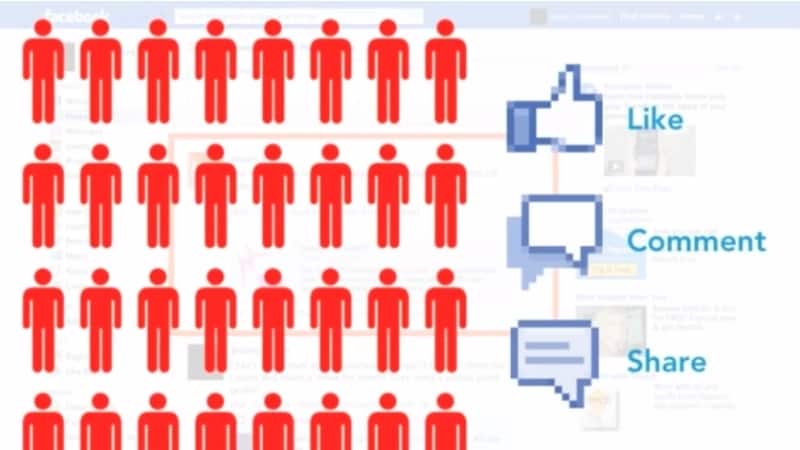Facebook has spent most of this year giving advertisers better options to get in front of its user base. One new feature is the real-time bidding protocol, Facebook Exchange (FBX), which has had many an ad technology provider rubbing their hands with glee at its targeting prospects, possibly none more so than Triggit chief revenue officer, Chris Zaharias.
Triggit was one of the many FBX early adopters that Facebook counted among its preferred partners and having had time to work on the platform, Zaharias was able to reveal some interesting facts about it to PerformanceIN.
Zaharias shares his opinion on the benefits of FBX, the shortcuts that some retargeting companies are making, whether Facebook could ever actually go freemium and what some of the social site’s future developments could entail.
How is Facebook’s Ad Exchange, FBX, Set to Change the Face of the Display Industry?

What is it About Triggit’s Technology That Will Give Advertisers More of a Leg-up Than Other FBX Partners Like AdRoll, Criteo and Turn?
CZ: One of our main features is that we’re the only FBX partner telling the truth, which is that FBX deserves every incremental ad dollar because it’s dirt cheap, converts better than Google AdX and others, and is multiples bigger than any other inventory source. To its credit, AdRoll has a similar message, but its trying to be a self-service solution for thousands of small to medium-sized advertisers, whereas we are a managed services provider which believes strongly that most of the top 5,000 direct response advertisers want and need both technology and skilled services to be successful. Criteo? Well, I’ll say this – after Google which does $4-5 billion in retargeting revenues, Criteo’s #2. They got after it early, they’ve executed well in sales and marketing, and they know how to get high CTR. That said, many of their big customers have come to us because:
- They want someone with FBX-ready dynamic creative and a willingness to focus on this channel.
- They suspect Criteo is using its first party data to target other advertisers’ ads.
- They want a partner with lower margins. Have you seen Criteo’s HQ office in Paris? It makes the Eiffel Tower look like a piece of scrap metal.
Turn is much more focused on being a self-service solution for agency trading desks, whereas we primarily sell directly to Google’s top 5,000 advertisers.
Our primary technology advantage is that we can do fully dynamic creative on both the right-hand side (RHS) and Newsfeed. There are only two other FBX partners we’ve seen able to do the same, and of those, only one can do so outside the US and in verticals besides retail. Our data tells us that fully dynamic ads — where the title, image, ad copy, timing, frequency and recency are all dynamically-determined based on cookie data — drive 9-10X greater FBX campaign efficiencies than static ads, and two to three times more than the partially-dynamic ads our competitors run. In a massive landrush like FBX, the most dynamic campaigns will win.
As More Advertisers Recognise the Benefits of FBX, Will it Become More Expensive and Will Today’s Traditional Display Landscape Become More of a Budget Option for Advertisers?
CZ: Facebook has over one million advertisers on its traditional social ads, yet only a few thousand on FBX according to Facebook’s recent earnings call. Google has several million advertisers. FBX has so much inventory that it’ll take much longer for inflation to occur than was the case with Google AdX (which took two to three years to go from the CPM’s FBX is at now to Google’s current, five times higher pricing).
Traditional display is many times more expensive than FBX, so no, it won’t be a budget option for advertisers until FBX inventory is many, many times more expensive than it is today.
Alternatively, Do You Think Facebook Will Ever Lease its Data and Technology to Third Parties, Paving the Way for Facebook Ads to Appear on Sites Outside of the Social Network?
CZ: We never really know what Facebook is going to do, but the reality is that they’ll have to monetize better for potential publisher partners than Google Adsense does, or they’ll have to pay 100%+ revenue shares, something they’re unlikely to do. For that reason, I think you can expect it’ll be several years before Facebook has achieved sufficiently high FBX monetization such that it can use that monetization base to compete successfully for distribution.
Is Facebook’s Forthcoming TV-style Video Ads Likely to Incorporate FBX Technology at Some Point?
CZ: Ad exchanges allow more advertisers to more quickly adopt new marketing channels. It makes sense for Facebook to take a page from Google’s playbook and have their overall ad auction determine which video ads show on YouTube, but to be clear, Facebook keeps its ad strategy very close to the vest, much like Google did in the early years.
Do You Think Facebook Will Ever Go Down the Freemium Route? Why?
CZ: In my 12-year-old cat’s lifetime, probably not, but in my lifetime, yes, I do. That is probably heresy here in Silicon Valley, but I do think that eventually some startup will come along that will disrupt both Facebook and Google by letting users put their own consumer ‘intent’ up for auction, which be the mirror opposite of freemium. What I mean by that is users will force advertisers to pay for the opportunity to advertiser to them. Not the Freemium you might expect, but there will be users who you can show ads to for free, and users who’ll auction of their intent to the highest, most relevant bidder.
What, in Your Opinion, Are Likely to be the Next Big Ad Developments That Facebook Rolls Out?
CZ: There’s been lots of speculation that Facebook will have video ads, and that makes sense. Seeing how well Facebook’s ad inventory converts when the intent signal is strong, it wouldn’t surprise me at all if Facebook bought some big source(s) of consumer intent data and made it a targeting vector for FBX and/or marketplace. Last, expect Facebook will develop more and better programmatic/API interfaces to its inventory to allow more advertisers to more efficiently buy more Facebook inventory.

